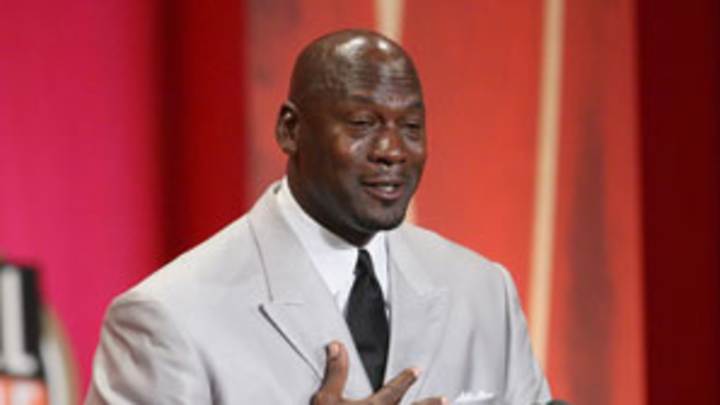Fame can be dangerous; just look at the athletes ruined by it

"I think the promise of fame and what it holds to you as a child and dreaming of it is not what it is. What it is, I'm not complaining about, but it's just different than the reality you dreamed."-- Rosie O'Donnell
When I was a kid growing up in Mahopac, N.Y., my father would occasionally gather the family around the kitchen table and ask, "What do you hope for from life?"
This was the early-to-mid 1980s, which means my answer was usually either an Atari 2600, an autographed Garry Templeton jersey or diplomatic immunity to urinate in my brother's wastepaper basket.
"No," Dad would say. "What do you want to achieve?"
The ensuing conversations were usually good ones. We were living in an era when people were encouraged to dream big; when Ronald Reagan was urging Americans to climb the tallest possible mountain. "You can be anything you want," Dad often said. "A lawyer, a doctor, a scientist, a small business owner. As long as you work hard and ..."
Ah, the innocence.
Now it's 2009, and while I still crave the Atari 2600, I am seemingly alone in my desire for outdated consoles. These days citizens young and old, short and tall, black and white, Jewish, Gentile, Muslim, Agnostic and Atheistic seek one thing, and one thing only.
Fame.
Much like the H1N1 virus, the ravenous need for attention seems to spread at the speed of light. From Facebook to MySpace to Twitter to Bebo to Jaiku, millions of Americans are desperate for you to know that, at this very moment, they are removing a greenish beige lint from their bellybutton; that their 11th favorite all-time basketball player is Sedric Toney; that they once met Alison Cimmet in the supermarket and, gosh darnit, "I really can sing!" ("Just watch my cover of LaLa Deaton's Stay on YouTube! You'll love it!").
Fame's hypnotic pull explains the 25 women competing for a fat, balding, talentless Bret Michaels on Rock of Love. It explains Terrell Owens, wealthy-beyond-his-dreams NFL superstar, making a buffoon of himself on a reality TV show. It explains those idiots standing behind Stuart Scott and Jeff Van Gundy at the NBA Finals and waving into the camera.
Yet despite the myriad goody bags that accompany certain types of notoriety (Beyonce and Jay-Z don't seem to be complaining), fame is -- with rare exceptions -- the ultimate soul sucker; the best way to take a normal, kind, courteous Homo sapien and transform him/her into, well, an anus.
Why, just peruse the sporting world. A week ago, I sat in the balcony of Springfield's Symphony Hall and watched as Michael Jordan gave the most self-indulgent speech in modern history. His Airness used the occasion to bash his old general manager, ignore 90 percent of the former Chicago Bulls teammates who took the time to attend and let us know that, despite the frenzied excitement over his appearance, he seriously considered taking the stage, uttering "Thank you" and (poof!) leaving. "Ugh" moaned a man sitting two seats down. "This is what I drove five hours for?"
About three decades ago, the Jordan who came out of Emsley A. Laney High in Wilmington, N.C., was known to be a good-natured kid with oodles of confidence and equal helpings of decency. Now, approaching 50, he is threatening to come out of retirement to steal more glory. So what happened between the early years and today? Simple -- spotlight-itis. When one is recognized everywhere he goes, the inner-core begins to rot. You no longer see strangers as -- in the immortal words of Will Rogers -- "a friend I haven't met yet," but as conniving scoundrels seeking out coin.
As Greg Orlando, the renowned video game creator, once said, "The famous are like hallowed trees. Once, they bore fruit. Now, they are empty shells of nothingness." The rookie ballplayer, for example, approaches a gaggle of autograph-seeking fans, stops and inks every ball, every T-shirt, every bubblegum card. The veteran ballplayer (and I've seen this 1,000 times) makes a show of not stopping. He waves his hand, dismissively utters, "No time, sorry," then retreats to the clubhouse, where his Maxim awaits.
The young boxer is surprisingly happy, pursuing the sport he loves, fighting for respect, engrossing himself in the sights and sounds and smells of a dingy side street gym. The famous boxer, well, has anyone watched HBO's 24/7: Mayweather/Marquez in anticipation of tomorrow night's Floyd Mayweather-Juan Manuel Marquez fight? While the obscure Marquez comes off as a man comfortable in his own skin, Mayweather is a portrait of fame gone awry. In one episode, he chaperones the camera through his house, which is decked out with the finest this, the most expensive that. Yet there may well be no lonelier man on the planet than Pretty Boy Floyd, whose free time is spent looking for companions with whom to discuss, ahem, Pretty Boy Floyd.
Therein lies the greatest myth -- and trap -- of celebrity. We are conditioned to believe that the famous among us are more exciting ... more beautiful ... more interesting than the average guy.
Heck, just ask 'em.
